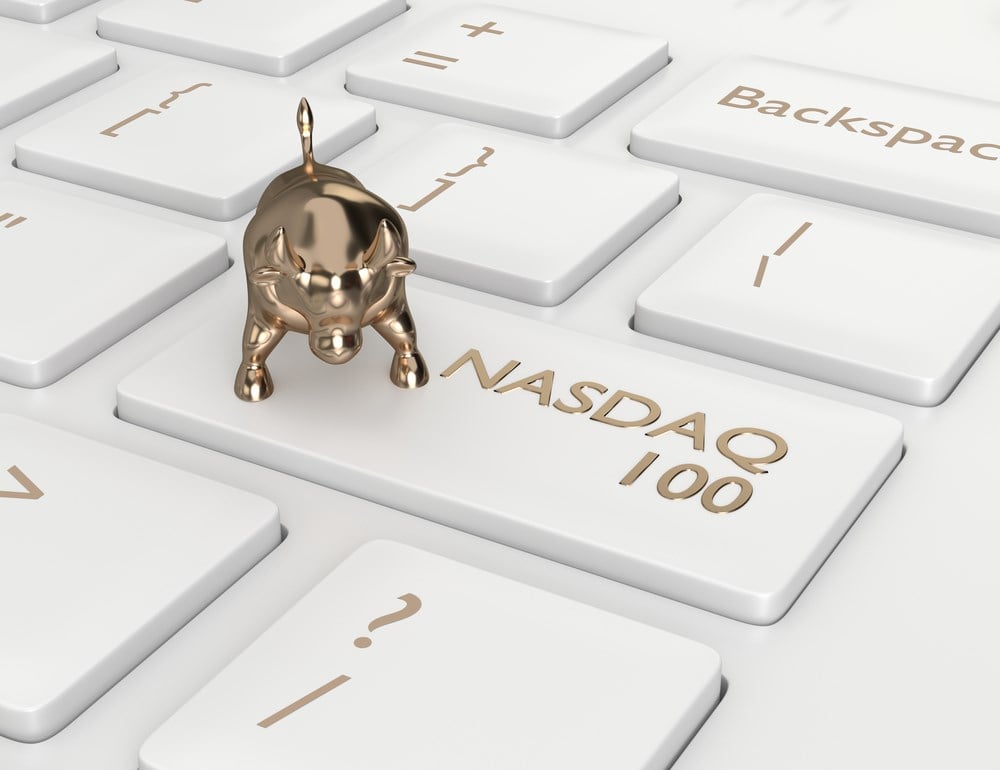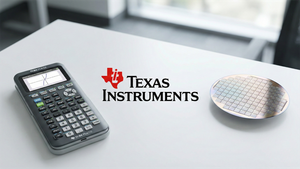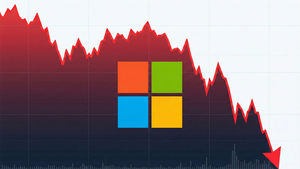
Some of the best performers of 2023 sold off on news that the Nasdaq 100 index was conducting a special rebalancing later this month.
Nasdaq announced the rebalance on Friday, July 7, after the market’s close.
As most savvy investors know by now, the outperformance of the Nasdaq and to a lesser degree, the S&P 500 has been driven by seven mega-caps, hailing from the tech, consumer discretionary, and communication services sectors.
Those stocks dubbed the “Magnificent 7” and their year-to-date performances are:
Apple Inc. (NASDAQ: AAPL): 45.52%
Microsoft Corp. (NASDAQ: MSFT): 38.93%
Nvidia Corp. (NASDAQ: NVDA): 188.68%
Tesla Inc. (NASDAQ: TSLA): 118.87%
Amazon.com Inc. (NASDAQ: AMZN): 51.35%
Alphabet Inc. (NASDAQ: GOOGL): 31.98%
Meta Platforms Inc. (NASDAQ: META): 144.39%
While those stocks accounted for nearly all the market’s gains in the first half of the year, breadth began to improve in June. A Bank of America analyst recently noted that market breadth is normalizing, with 50% of stocks outperforming the S&P 500 in June, up from 23% in May.
Promise Of AI Stoked Gains
Prior to June, the seven big stocks, most of them rallying on the promise of AI, benefited more than the broader market. The S&P 500 was up 15.91% in the first half, while the Nasdaq 100, as tracked by the Invesco QQQ (NASDAQ: QQQ) was up nearly 39%.
The outperformance of the Nasdaq 100, relative to the S&P 500, was due to exactly the issue Nasdaq is addressing: The heavy weightings of the seven stocks above.
Rather than just shrugging off the prominence of those companies within the index, Nasdaq has said it’s time to adjust the index weightings.
Rules Of Rebalancing
It’s a little complex, but here’s how the Nasdaq rules work. If all stocks with a weighting of 4.5% or higher, together as a group, constitute more than 48% of the total index, then it’s time to rebalance. According to an already existing set of rules, when that happens, the rebalancing must set the weighting of all those stocks, collectively, at 40%.
As of July 11, Microsoft, Apple, Nvidia, and Amazon each had a weight greater than 4.5%. Six of the stocks sold off on July 10 on news of the rebalance, so the weightings of Tesla and Alphabet were slightly lower than 4.5% on July 11. Meta, whose weighting was already below 4.5%, traded higher on June 10. Its current weighting within the Nasdaq 100 is 4.362%.
Despite the selling in heavily weighted components, the QQQ ETF eked out a gain of 0.03% on July 10. It was trading higher again on July 11.
Changes Become Effective July 24
The rebalance will be based on closing prices on July 3, with more details about the mechanics due out on Friday, July 14. The changes will become effective on Monday, July 24, before the opening bell.
So what does this mean for investors, specifically those who hold shares in QQQ?
An ETF tracking an index must, according to its investment mandate, track the index as closely as possible. That means, of course, that the QQQ, whose assets under management total $201.16 billion, must sell shares of those large stocks so its holdings match the index weightings.
Some Stocks Will Get Heavier Weighting
In addition, the QQQ or other ETFs pegged to the Nasdaq 100 must buy enough shares of other stocks that receive heavier weightings as part of the rebalance.
In a note about the rebalance, Wells Fargo analysts named Starbucks Corp. (NASDAQ: SBUX), Mondelez International Inc. (NASDAQ: MDLZ), Booking Holdings Inc. (NASDAQ: MDLZ), Gilead Sciences Inc. (NASDAQ: GILD), Intuitive Surgical Inc. (NASDAQ: ISRG), Analog Devices Inc. (NASDAQ: ADI) and Automatic Data Processing Inc. (NASDAQ: ADP) as stocks likely to increase in weight.
The Nasdaq implemented a special rebalance twice before: in December 1998 and May 2011. This time around, no stocks will be removed or added as part of the rebalance.




